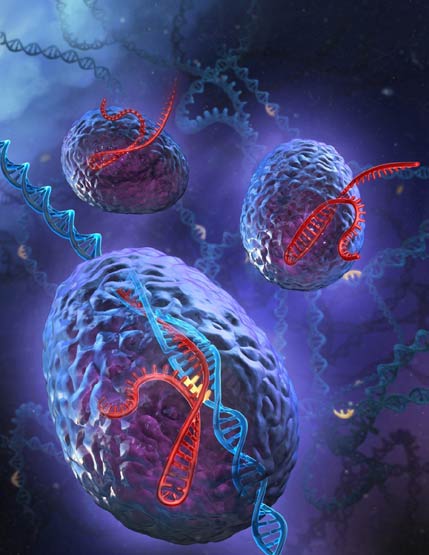
On one hand, the technology could reveal powerful information about babies' disease risk that could prevent illness or manage it. But those insights could also be muddled, complicated and unnecessarily worrisome due to the evolving and incomplete scientific understanding of what it means to carry any particular version of a gene - called a variant. Parents may not be prepared for what the technology might reveal - not only about their baby, but about themselves.
An ongoing clinical trial at Brigham and Women's Hospital and Boston Children's Hospital, called BabySeq, is trying to untangle some basic questions about the benefits and harms of gene sequencing. Does it improve health? Does it lead to lots of excessive medical testing? Does it cause harm?
Medical geneticist Robert Green presented a peek at early results at a meeting of the American Society of Human Genetics last month. So far the BabySeq researchers have recruited more than 150 families, who have been randomly assigned to receive sequencing or standard care. They've reported sequencing results back to 51 of them.
The researchers' results so far provide a glimpse of what this new genomic age is going to look like - and the bottom line may be that newborn testing so far looks less desirable and less conclusive than was expected.
The first surprise is that it's just a much harder road than anyone expected to get families to sign up. Before they began BabySeq, Green and colleagues approached hundreds of parents of newborns within two days of birth to gauge their hypothetical interest in genome sequencing. That study, published in Genetics in Medicine, led them to believe that parents were very interested in the information: More than three-quarters of parents said they were somewhat, very or extremely interested in testing.
But when the choice was no longer hypothetical, Green and colleagues found parents were more hesitant. The researchers have approached more than 2,000 families of healthy newborns and nearly 350 families with babies in the neonatal intensive care unit, and in both groups only about 7 percent enrolled in the study. Many declined to participate due to the logistical requirements of the study, but it was far from the only reason.
"There are a surprising number of families who are deeply concerned about privacy and confidentiality, who are deeply concerned about the possibility to receive uncertain or unfavorable results and the possibility of insurance discrimination," Green said. A federal law prohibits employers or health insurers from discriminating on the basis of genetic information, but it doesn't apply to life insurance.
The second insight has to do with the information itself. Genetic test results seem like they should be reassuringly binary: You have a gene mutation or not. But the truth is that what we know about our genes is in flux and that even a gene that has been linked convincingly to a disease won't always cause the disease in every person. And even if the link between the gene and the disease is well-established, what to do with the information may not be clear.
Green and colleagues carefully curated the genes that they included in their report to parents, looking for well-established genes linked to diseases of early childhood. They reported gene variants when there was good scientific evidence that they were pathogenic, or likely to cause disease.
Of the 51 infants who had their genes sequenced, three carried gene variants that were classified either as pathogenic or likely pathogenic for heart disease if a person carries just one copy. (People have two copies of each gene.)
Neither the babies nor the parents had any signs of illness. Those families have generally gone for further testing or cardiac evaluation, Green said, but it's uncertain at this point what value this genetic information will have in improving their health - they could develop a condition later in life, but they also might not.
"It reinforces the notion that you can carry these pathogenic variants, but simply not ever develop the disease," Green said.
Another baby carried two variants that cause a metabolic disorder, an enzyme deficiency. The condition was not picked up on routine newborn screening, Green said. The baby is developing normally and will probably get dietary supplements as a precaution.
In a last case, a baby carried a copy of the BRCA2 gene, associated with a high risk of breast cancer in adulthood. This led the team to one of the key moral conundrums that has come up with genetic testing, since the prevailing approach in children has been not to return information on adult conditions. Disclosing the gene variant could disturb the ethical principle of maintaining an "open future" for a child, until they can decide for themselves if they want to know their own genetic information. Not disclosing it could withhold valuable health information from the parents.
The team got permission from two ethical review boards to ask the parents of that baby if they wanted to know health information that could be pertinent to their health. They eventually disclosed the mutation, which was carried by the mother, who can now seek further preventive care.
"People hear that you're doing a project with sequencing of babies, and all these questions leap to mind," Green said. "And it's not that we're solving them, but my hope is that through even the early part of the project, we're bringing them from the hypothetical realm to the realm of actual experimental trials."


 Contact The Editor
Contact The Editor
 Articles By This Author
Articles By This Author